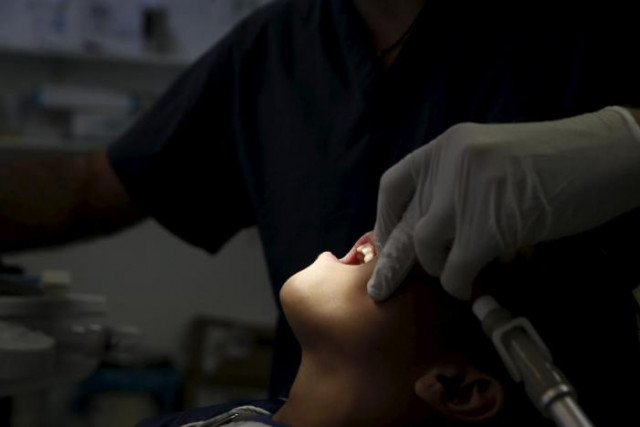Alzheimer’s drug may enable teeth to self-repair: study
This alternative has the benefit of being a one-off procedure

Dentist Christos Naoumis treats a young boy at the Doctors of the World polyclinic in central Athens, Greece, October 27, 2015. Picture taken October 27, 2015. REUTERS/Alkis Konstantinidis
TB treatment’s high success rate hailed as ‘breakthrough’
Published by the Dental Institute of London's Kings College, the study claimed the drug could enhance teeth’s ability to self-repair by activating stem cells in the soft pulp at the center. Although the natural process of teeth repairing themselves without the drug only worked for very small cracks and holes on the surface of the tooth, the drug was able to self-heal larger dents anywhere from the surface to the root. This would reduce the need for artificial fillings.
“Using a drug that has already been tested in clinical trials for Alzheimer’s disease provides a real opportunity to get this dental treatment quickly into clinics,” lead author Paul Sharpe of King’s College said in a statement.
High approval for cannabis, other measures in US vote
This cheaper alternative has the benefit of being a one-off procedure, eliminating the risk associated with fillings, which could build more decay, gradually thinning the tooth and eventually losing it entirely overtime. The bad news; however, is that the drug has only been tested on mice and it is yet to be seen if it will work on larger teeth. In mice, the procedure has managed to “fill the whole injury site.” When their teeth cavities were filled with degradable sponges soaked in the drug, the teeth gradually rebuilt their structure.
Drug quality assurance: New inspection mechanism to be devised
“Extrapolating the size of a mouse first molar to that of a human suggests that an equivalent lesion would require around 10 times more reparative dentine formation and thus the anticipated concentrations of Tideglusib [the healing substance] required for human tooth repair would be well below that already tested in clinical trials,” the study read.
Tests are now being conducted on rats as their teeth are roughly four times bigger than that of mice. Researchers plan to run trails on humans later in 2017.
This article originally appeared on RT.


















COMMENTS
Comments are moderated and generally will be posted if they are on-topic and not abusive.
For more information, please see our Comments FAQ